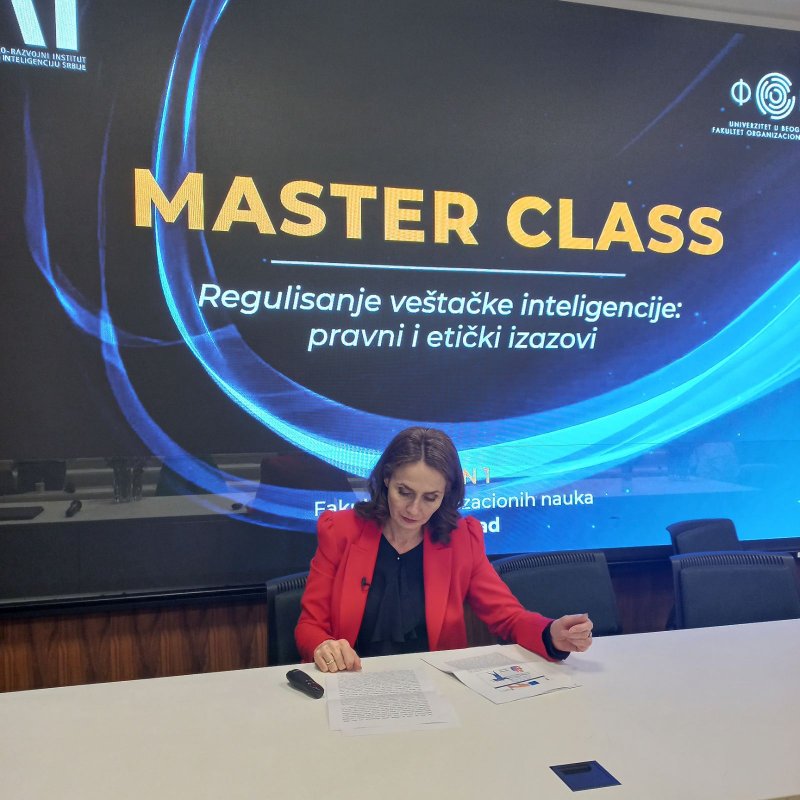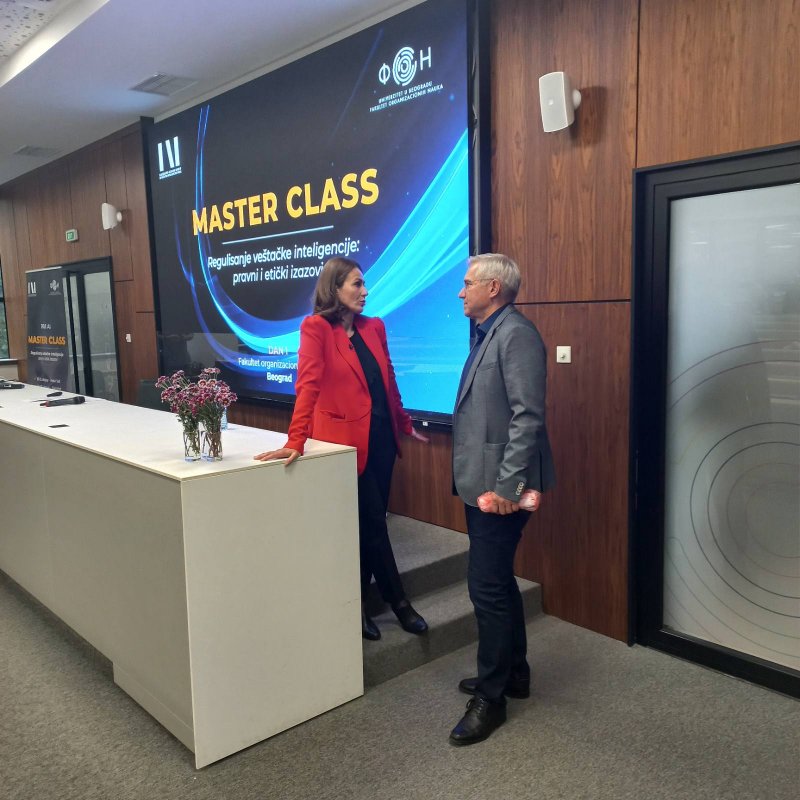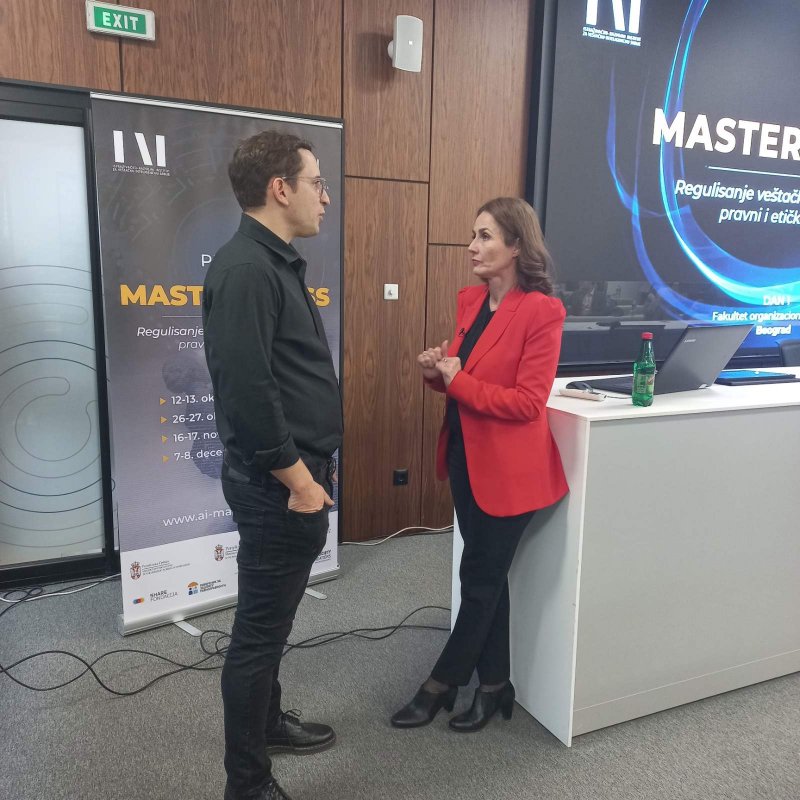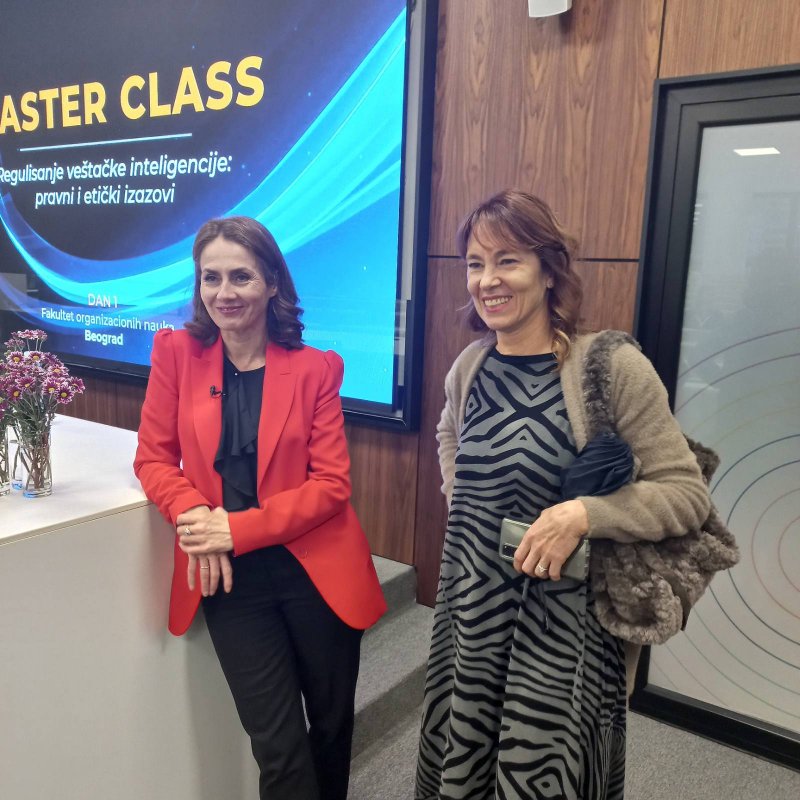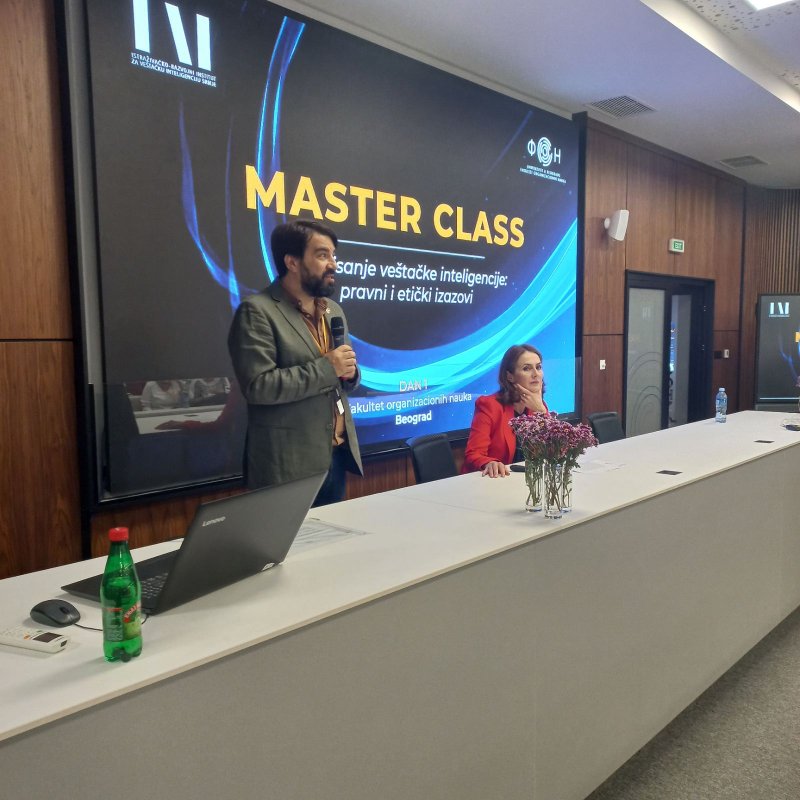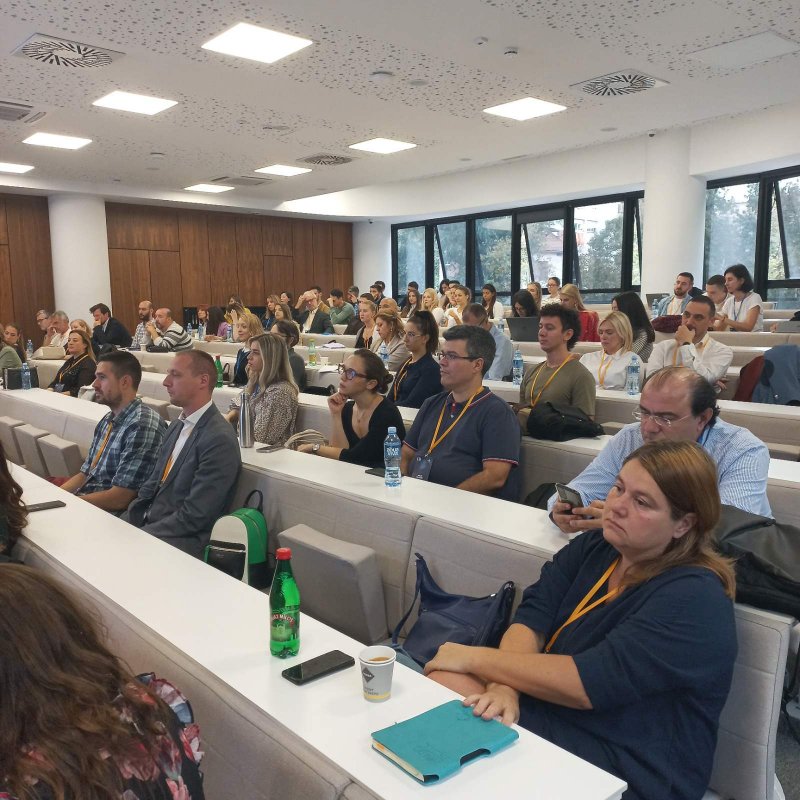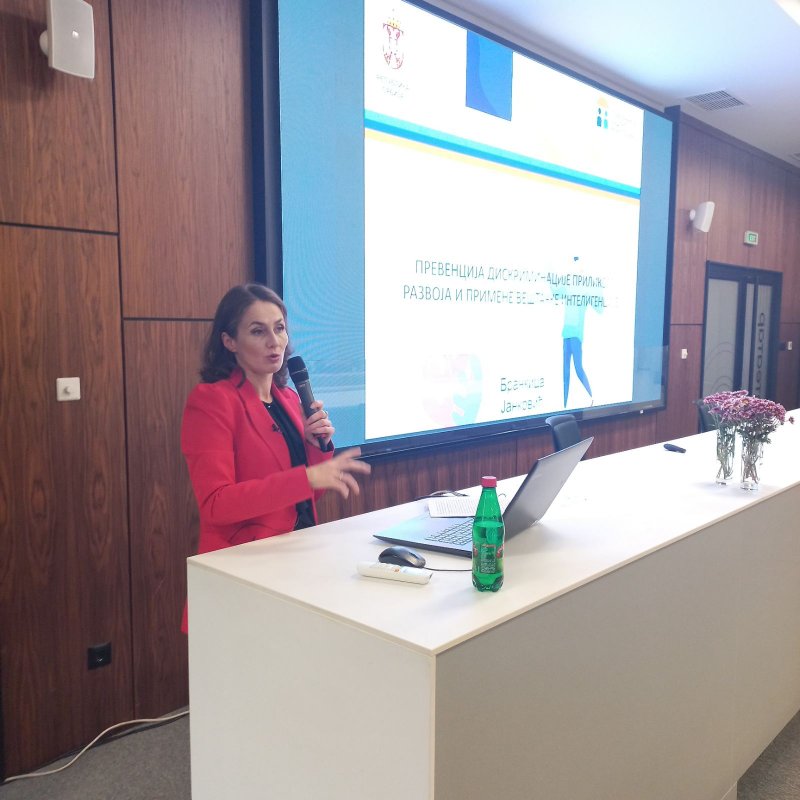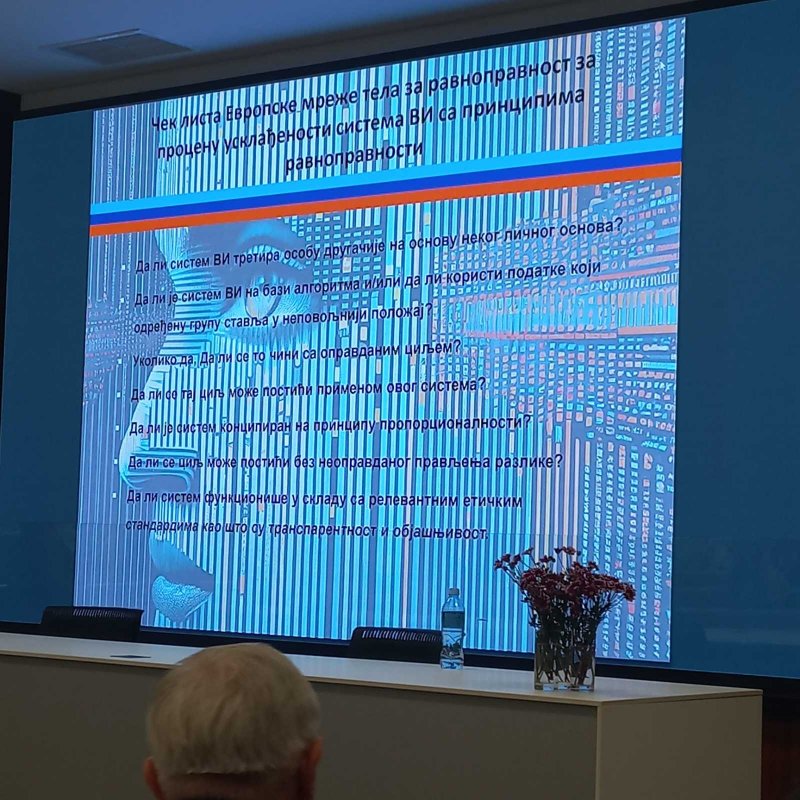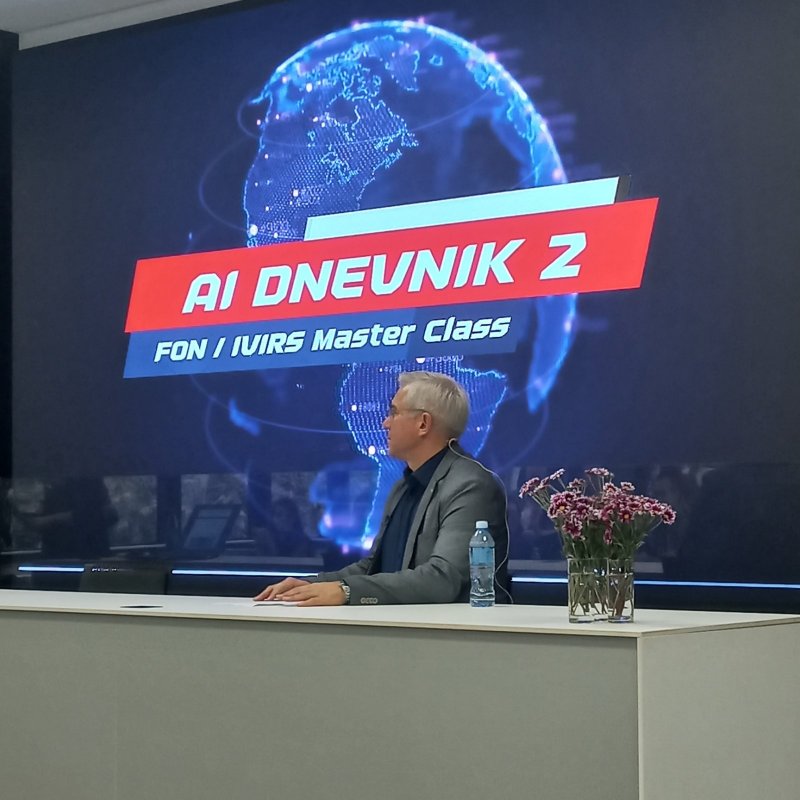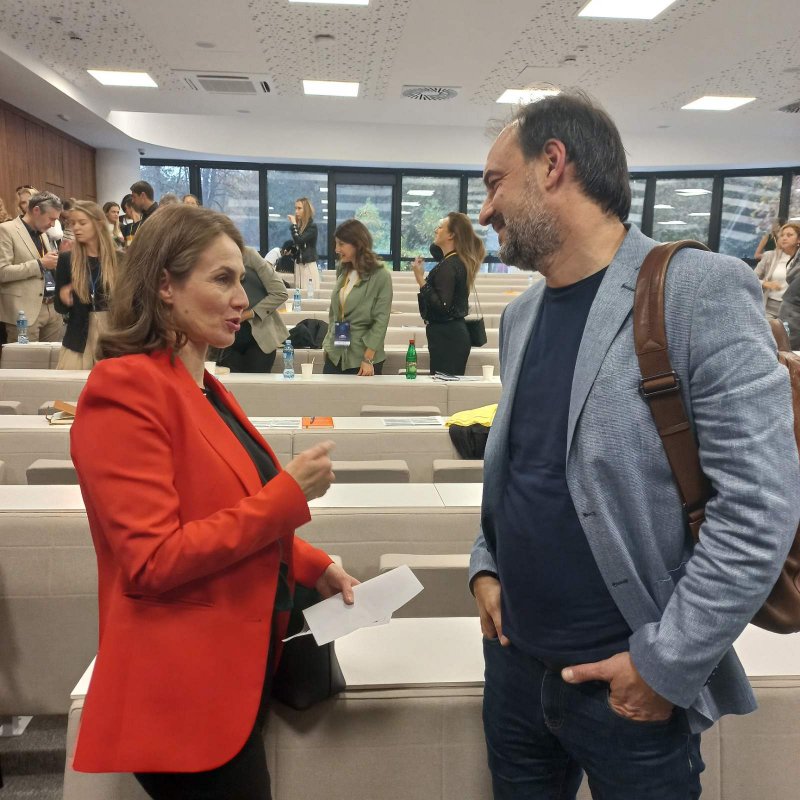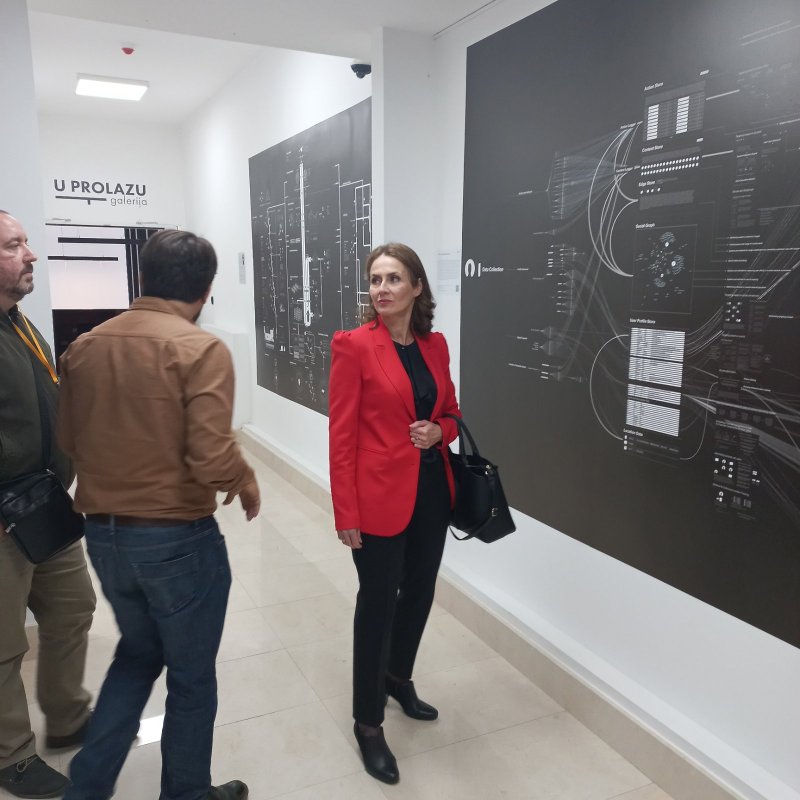We are witnessing tectonic shifts in the field of development of digital technologies, attempts to rein in and direct their development in the direction in which they will serve humanity with as few negative consequences as possible for society, not only when it comes to equality, but in general, for the entire social fabric and cohesion, said Commissioner for the Protection of Equality, Brankica Janković, in the introductory part of the AI Masterclass lecture “Regulating artificial intelligence: legal and ethical challenges” held at the Faculty of Organizational Sciences.
The Commissioner gave a presentation on the impact of artificial intelligence on human rights – the biggest challenges, legal framework, and practice, as well as on the competencies of the institution of the Commissioner. According to her, at all levels of governance in the world, there has been a stir-up about artificial intelligence, which, although it is not the only challenge to human rights in the digital space, additionally increases the dangers of existing threats, such as hate speech and incendiary speech, and can also, in a broader sense, jolt the foundations of the labor market and the economy as a whole.
Catching up with technological progress poses a serious challenge to the legislator to both form an adequate legal framework timely and respond to real challenges, and succeed in the intention that such a legal framework remains relevant long enough to serve its purpose. In a time of rapid technological progress, overcoming this challenge is a growing problem, pointed out Janković.
The first AI Masterclass lecture to explore the topics of artificial intelligence through a combination of theoretical and practical sessions and its legal and ethical challenges was organized by the Faculty of Organizational Sciences in cooperation with the Institute for Artificial Intelligence of Serbia. The program sponsors were the Ministry of Science, Technological Development and Innovation, the Ministry of Information and Telecommunications, and the Ministry of Internal and Foreign Trade, with the support of business partners.
